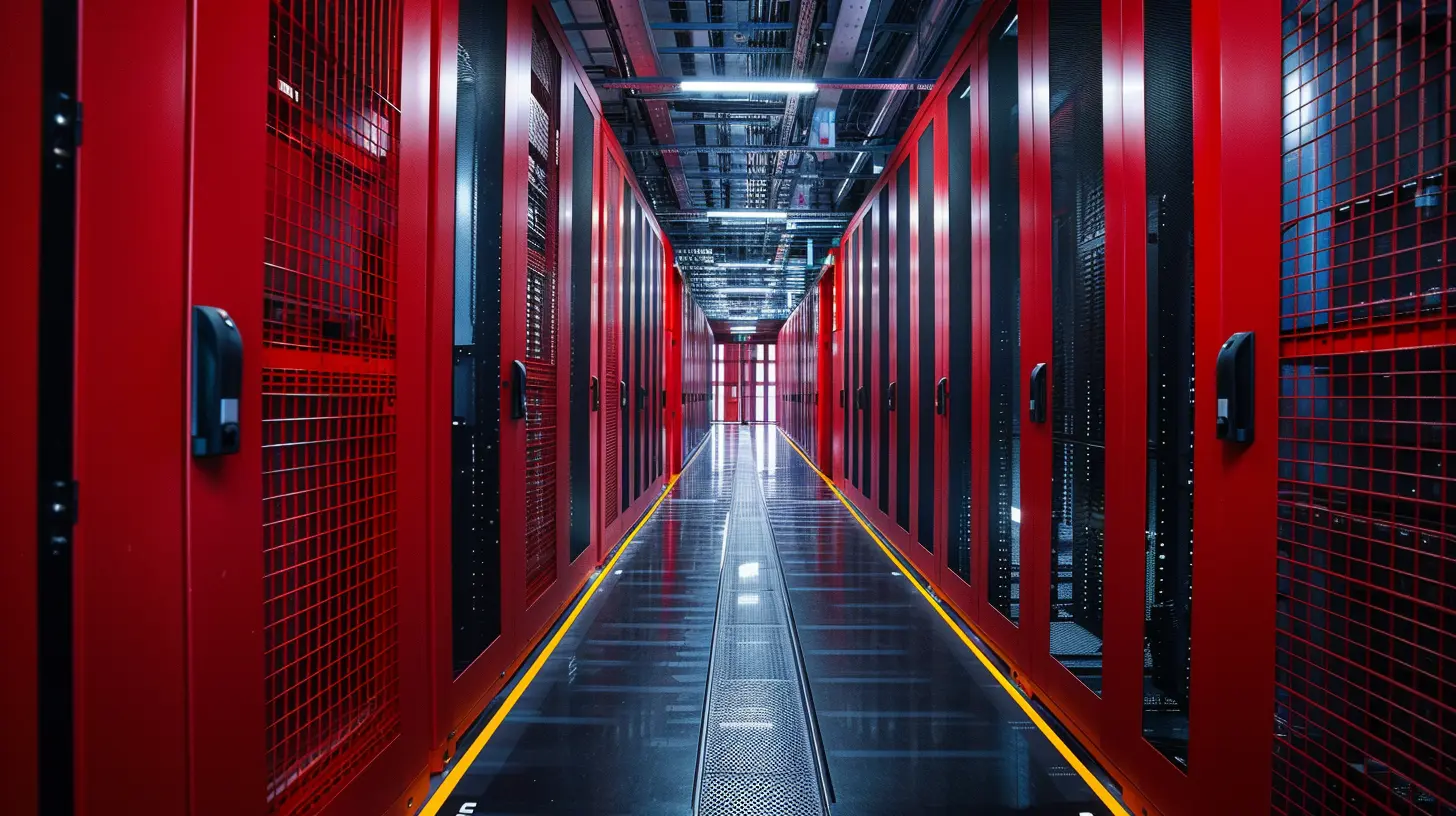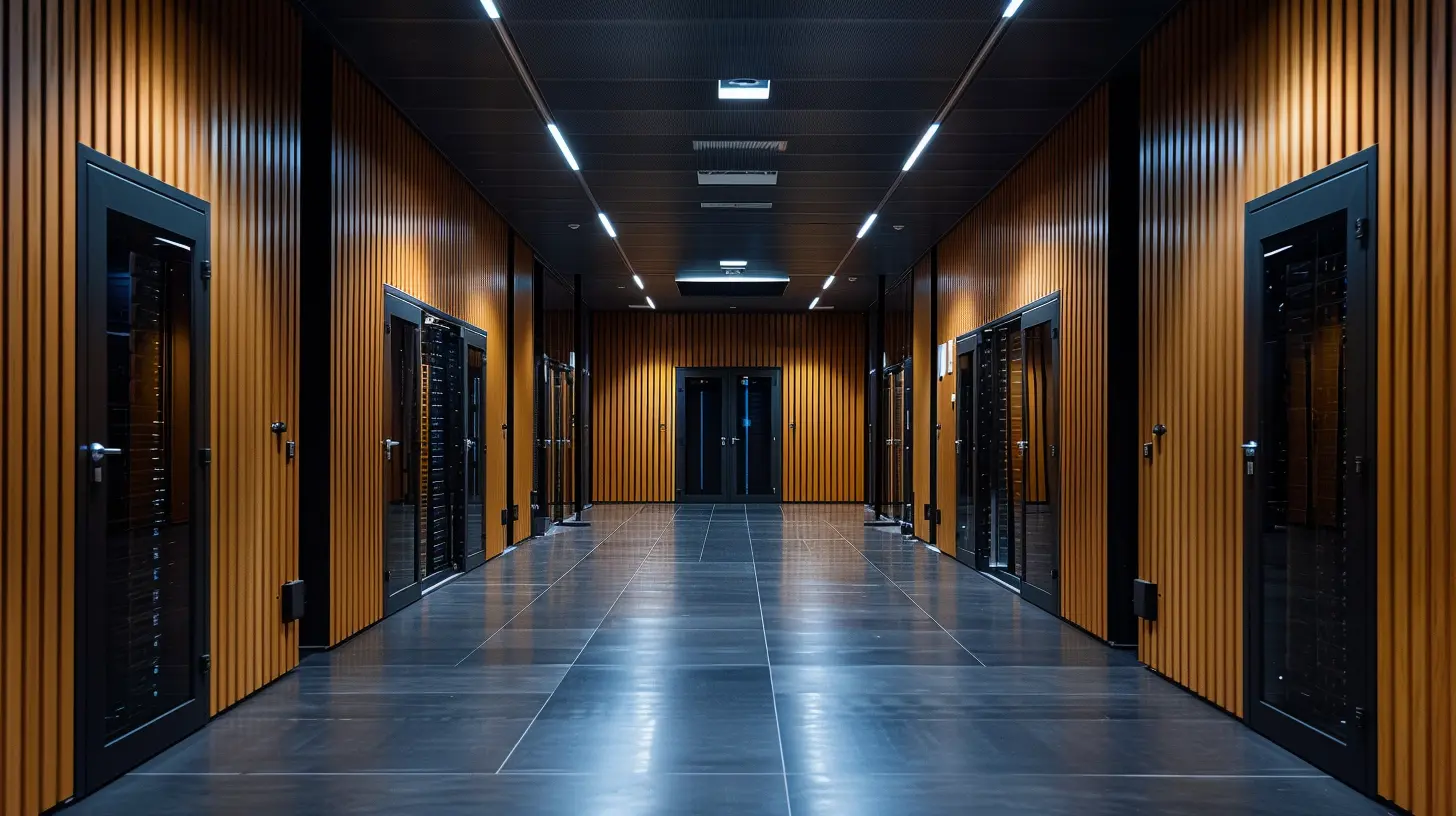Colocation Data Centers: When to Outsource Your IT Infrastructure
3 July 2025
Keeping up with the ever-evolving world of IT infrastructure can feel like trying to outrun a speeding bullet. Demand grows, systems scale, costs balloon—and suddenly, your in-house server room starts looking like a tangled mess of wires and blinking lights that’s ready to stage a mutiny.
So, what do you do?
Well, more and more businesses are turning to colocation data centers. But what in the world does that actually mean? And when’s the right time to jump on that bandwagon?
Let’s dive deep into the world of colocation data centers and figure out whether it’s time for you to ditch your aging server closet and outsource your IT infrastructure.
What is a Colocation Data Center?
Alright, let’s break it down. A colocation data center (or “colo” for short) is like a luxury apartment complex for your servers.You own the hardware (servers, storage, networking gear, etc.), but instead of housing them in your office closet or a backroom that doubles as a storage space, you rack them inside a third-party data center. The facility provides the power, cooling, bandwidth, physical security, and space you need—kind of like the building maintenance, utilities, and front desk of that luxury apartment.
You bring the gear, they handle the heavy lifting. Simple, right?
Why Companies Use Colocation Instead of Keeping Servers In-House
Still unsure why someone would hand over their precious baby (aka their servers) to someone else? Here are some compelling reasons:1. It’s More Reliable than Your Office Server Room
Your server room might look cool with all the blinking lights, but what happens when there’s a power outage? Or a water leak? Or someone accidentally unplugs something while vacuuming?Colocation data centers are designed for resilience. We’re talking redundant power feeds, backup generators, industrial-grade cooling, and 24/7 monitoring. These facilities are built to handle disasters so that your IT systems don’t have to flinch.
2. Scalability Without the Capital Drain
Ever tried to scale up your on-site infrastructure? It’s like trying to build a second floor on your house overnight. Expensive, messy, and an absolute headache.With colocation, you can scale up (or down) as needed without breaking the bank on new real estate, construction, HVAC systems, and fire suppression plans.
3. Better Connectivity and Performance
Colo facilities are carrier-neutral. That means they’ve got multiple internet service providers on tap, so you can pick the one that suits you best—or even use several for redundancy. Your office connection? Yeah, not quite in the same league.This translates to better network performance, faster data exchanges, and less downtime. It’s like hopping on the express lane while everyone else is stuck in traffic.
4. Enhanced Security Without Hiring a SWAT Team
Data breaches are no joke. Protecting your IT infrastructure means more than just slapping a lock on the door.Colocation data centers offer advanced physical security—with biometric scanners, CCTV, on-site guards—and robust cybersecurity tools. Your servers are guarded like crown jewels, without you needing to put together your own MI6 task force.
When Should You Outsource Your IT Infrastructure?
So now that colocation sounds like a dream, when’s the right time to pull the trigger? You don’t want to jump in too soon—or too late. Here are signs that you might be at that tipping point.1. Your Current Infrastructure Is Tapped Out
Is your server room bursting at the seams? Power running too hot? Not enough cooling? If you feel like you’re putting Band-Aids on your infrastructure just to keep systems running, that’s a cry for help. Colocation can offer breathing room—literally and figuratively.2. You’re Planning for Growth
If your business is scaling fast, you don’t just need more servers—you need a strategy. Colocation lets you scale without waiting on construction or reconfiguring an already-crowded server room.Fast-growing startups and expanding enterprises alike use colocation to accommodate agility. You get a flexible environment to grow into without overcommitting on infrastructure.
3. Your Budget’s Tight, But You Still Need Reliability
Building and maintaining a data center is pricey. We’re talking millions of dollars for a halfway-decent facility—even more for a top-tier one. Colocation spreads those costs across tenants, meaning you get premium infrastructure without footing the whole bill.If you need enterprise-level performance without torching your budget, colocation is a pretty appealing alternative.
4. You Can’t Afford Downtime
If every minute offline costs you real money (or worse, customer trust), you need a setup that guarantees uptime. Colocation data centers often boast SLAs with 99.999% uptime. Good luck beating that with your office setup.5. You’re Looking to Bolster Disaster Recovery
Natural disaster? Cyberattack? Zombie apocalypse? (Okay, maybe not that last one…) The bottom line is that if something goes wrong, you want a plan.Colocation offers geographic diversity. You can back up your systems in different locations and failover seamlessly when things go sideways. You’re not just storing data—you’re protecting your entire operation.
Colocation vs. Cloud: What’s the Difference?
Ah, the age-old question. If you’re thinking, “Wait, I thought cloud computing solved all these problems already,” you’re not wrong… but it’s not quite the same.Colocation = You Own the Hardware
You buy and maintain your own servers, you just rent rack space from someone else.Cloud = You Rent Everything
The cloud provider owns the gear—you just rent virtual resources. You don’t touch the hardware. Ever.So which one wins?
- Go colocation if you need control, performance, compliance, or already own the hardware.
- Go cloud if you want to go fully elastic and offload nearly everything.
Honestly, a lot of businesses do both.
Yup, hybrid environments are a real thing. You might colocate your mission-critical systems, while using public cloud for bursts or non-sensitive workloads. Best of both worlds.
What to Look for in a Colocation Provider
Alright, let’s say you’re sold. But not all colocation facilities are created equal. How do you pick the right one?Here’s a quick checklist.
✅ Reliability and Uptime
Look for facilities that offer Tier III or IV standards with strong Service Level Agreements (SLAs). You want a power outage to be as unlikely as winning the lottery.✅ Location, Location, Location
Choose a data center that’s near enough for easy access but far enough to offer geographic disaster protection. Bonus points if it has multiple locations.✅ Carrier-Neutral Connectivity
Ensure the provider offers access to multiple carriers for flexibility and redundancy. One internet provider isn’t enough these days—it's like only having one route to the airport during rush hour.✅ Security Measures
Ask about physical and cybersecurity. Think biometric scanners, video surveillance, and DDoS protection.✅ Support and Services
Do they offer hands-on support, remote hands services, or on-site technicians? You’ll thank yourself later when you don’t have to drive to the facility for every little fix.Common Myths About Colocation (And Why They’re Wrong)
Let’s tackle some myths real quick.“Colocation is Only for Big Companies.”
Nope. Startups, SMBs, and even solo entrepreneurs can benefit from colocation. It’s often cheaper than in-house options and helps smaller businesses punch way above their weight.“It’s Too Expensive.”
Compared to what? Building your own facility? Managing outages? Losing critical data? Over time, colocation usually works out cheaper and more predictable in your budget.“I’ll Lose Control.”
Actually, you have more control over your hardware than you would in the public cloud. It's your gear, just hosted in a better environment.Is Colocation Right for You?
Still on the fence? Ask yourself:- Are your current on-site systems outdated or unreliable?
- Do you need better performance or uptime?
- Are you growing faster than your infrastructure can handle?
- Do you want to retain control over your hardware?
- Would outsourcing infrastructure tasks reduce your team’s stress?
If you answered “yes” to any of these, colocation might just be the secret weapon your IT strategy needs.
Final Thoughts
Colocation data centers aren’t a magic wand, and they’re not the solution for every company. But for the right business, at the right time, they can be a game changer.Outsourcing your IT infrastructure through colocation gives you the power, connectivity, and backup of a full-blown data center—without the hassle of maintaining one yourself. It’s like renting a penthouse suite for your servers and letting someone else take care of the plumbing, electricity, and HVAC.
So, is it time you handed over the keys to your overwhelmed server room and made the switch? Only you can answer that. But now you know what to look for—and when to make the move.
all images in this post were generated using AI tools
Category:
Data CentersAuthor:

Gabriel Sullivan
Discussion
rate this article
1 comments
Onyx Fuller
Embracing colocation data centers is a game-changer! Outsourcing your IT infrastructure brings efficiency, flexibility, and peace of mind. Exciting times ahead!
July 9, 2025 at 11:27 AM

Gabriel Sullivan
Thank you for your insights! We're thrilled to see the growing recognition of colocation data centers and their benefits for businesses. Exciting times indeed!

